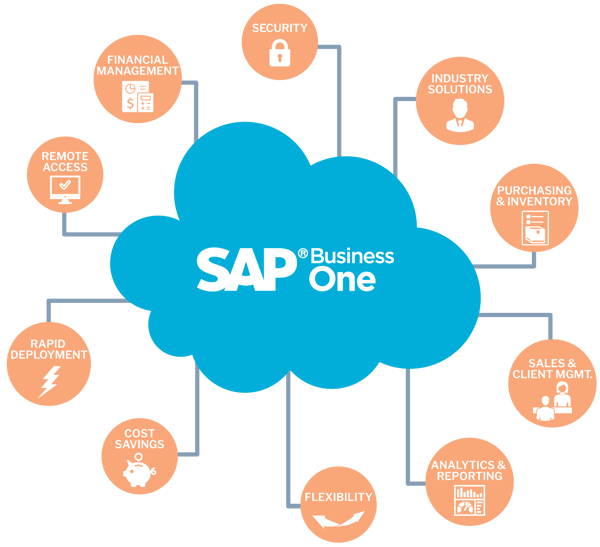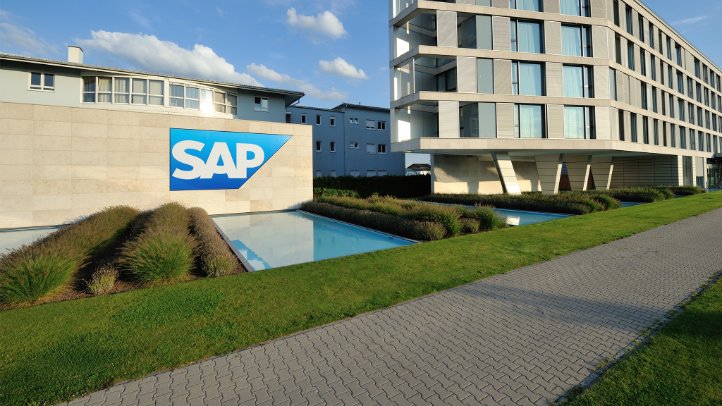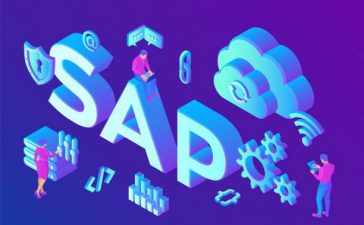Introduction
SAP stands for “enterprise resource planning.” SAP Course is the most widely used ERP software, with hundreds of fully integrated modules that cover almost every element of corporate management. SAP allows organisations to establish a centralised system that allows every department to access and exchange data, resulting in a better workplace environment for all employees.
SAP’s Advantages:

Data Unification
It brings together information from many operations and business activities in a single area. This facilitates the exchange of information and data across business units and departments. Sales, inventory, finance, manufacturing, and human resources departments can all access information from other departments and express their needs effectively. This also aids in the reduction of communication mistakes and delays, as well as improving overall efficiency. The success of every organisation depends on good communications and information interchange among all divisions, and SAP, as an enterprise resource planning system, makes this possible.
Technology
SAP allows procedures to be automated and processes to be simplified. Data from operations such as account administration, order management, and vendor management is automatically routed according to the system’s approval and rejection rules. Employees may focus on more productive activities while the ERP system tackles the monotonous ones, allowing businesses to become more efficient.
Connectivity
SAP can be installed on-premises or in the cloud. As a result, SAP ERP is extremely adaptable and accessible. Many of SAP’s services and applications are also available as mobile apps. SAP is compatible with a wide range of operating systems and devices, including Windows, Linux, Android, iPhones, and Mac. As a result, as a user, you can access the ERP from anywhere at any time. SAP’s best-in-class security measures ensure that any organization’s private data is always safe, even when accessed via mobile apps.
Globalization of markets
SAP offers support for a wide range of geographical regions. SAP, as an enterprise solution, supports all major currencies throughout the world, making it beneficial for businesses with worldwide operations.
Visual representation
SAP’s reporting and dashboards capability allow you to examine all of the essential data pointers in real-time in an easy-to-understand style. When compared to big data sets, graphs and charts are easier to interpret and navigate. This allows you to make quick decisions about your future steps and makes comprehending the procedures and related concerns much easier.
Increased Revenue
SAP’s features improve process efficiency, free up staff to focus on more essential activities, and provide a comprehensive picture of operations, making it easier to identify concerns. An improvement in efficiency leads to a rise in total revenue and profit for a company.
Purpose of SAP
SAP supports optimal data processing and information transfer across businesses as one of the world’s top software systems dedicated to the administration of business processes. SAP S/4HANA, for example, uses in-memory processing to analyse large quantities of data while also enabling sophisticated technologies like artificial intelligence (AI) and machine learning.
SAP now has over 230 million cloud users, over 100 solutions spanning all business processes, and the most comprehensive cloud offering of any supplier. Companies can rely on SAP to help them function even more effectively by assisting them in eliminating data duplication and redundancy.
In India, the Top Companies Using SAP Software
SAP is one of the world’s most prestigious and largest ERP solution providers. According to records, SAP ERP Solutions are used by around 70% of Forbes firms and other businesses.
- India’s Apollo Tyres
- Mahindra & Mahindra Ltd.,
- India MRF,
- India Hero India-Hero MotoCorp Ltd.
- Tata Motors,
- India Bajaj Auto,
- India TVS Motors,
- India Ford,
- India Eicher,
- India Tata Motors,
- India Honda Two-Wheelers
- India’s Maruti Suzuki
- Rico Auto Industries Ltd.
Gas and Oil
- India’s Oil and Natural Gas Corporation (ONGC)
- India’s Bharat Oman Refineries Limited (BORL)
- Indian oil.
- BPCL, India
Products for the Global Public
- India Future Group,
- India Videocon,
- India Onida,
- India Coca-Cola,
- India Pepsi,
- India Britania Industries,
- India Hindustan Unilever
- TITAN,
- India VOLTAS,
- India Samsung, India
- India, Nestle
Engineering, construction, and operations are all part of the engineering, construction, and operations process.
India’s GMR Group
Hindustan Construction Company
Okaya Power Group- is a Japanese conglomerate.
Components & Machinery for the Industrial Sector
Components & Machinery for the Industrial Sector
SAP is used by IT (software) companies in India.
- IBM India TCS India Accenture India
- Hewlett-Packard (HP)
- India HCL Technologies Ltd.
- NIIT Limited
- ITC Infotech is a company that provides information technology services.
- L&T Infotech
- Mindtree Consulting
- Deloitte
- Wipro
- Capgemini
A career in SAP is both academically and professionally demanding, as well as financially rewarding. The good news is that by taking the TimesPro SAP Training, you may accelerate your career advancement and become industry-ready, whether you are a new employee or have been working for a while.
SAP COURSE ELIGIBILITY
A candidate needs to meet the below criteria in order to me SAP course eligibility.
- An SAP course certification does not have any precise criteria.
- Graduates (BTech, B.Sc., or B. Com graduates may benefit more) or Master’s degree holders are required.
- Knowledge of computers and a basic understanding of the field in which you wish to take the SAP course will be a major bonus.
- The SAP FICO training course has the advantage of being appropriate for anybody interested in or already working in the financial profession.
- There are no specific prerequisites for taking the SAP FICO certification course; nonetheless, this course is best suited for:
- Finance Executives searching for a job in the SAP FICO domain
Advise anyone who wants to go for the SAP Course kindly check for the SAP Course Eligibility as it is very important and good to know. Moreover, the SAP Course Eligibility may vary for various institutions.

SAP Course Certification and why does it matter?
The SAP Course Certification programme now has over 150 certificates, making it tough for newcomers to choose from. A professional should select a program based on their organizational requirements, long-term objectives, and area of expertise.
The certification is broken down into three categories:
Associate:
For individuals who are new to SAP solutions and have a basic understanding of the essentials through training courses and manuals
Professional:
Trained professionals with an in-depth understanding of the technology, experience working in it, and a desire to improve their abilities.
Specialist:
Specialist certificates allow associate SAP certification holders to specialise in certain business sectors.
Specialist courses can only be pursued by those who have completed specific topics in an Associate programme. Associate and Professional SAP certifications have no minimum criteria, skills, or previous certification requirements, whereas Specialized courses can only be continued to pursue by those who have accomplished particular subjects in an Associate programme.
Modules in SAP
Technical SAP Course training is divided into two major modules: ABAP and Basis, whilst functional.
SAP training is divided into numerous key modules such as
- SD (Sales and Distribution)
- Management of Human Resources
- Finance and Controlling in HRM
- FICO Material Management MM
- Customer Relationship Management CRM
A variety of other functional categories can be selected depending on personal career goals, corporate needs, and a variety of other factors.
Validity of SAP Courses
As long as the product or software does not undergo major modifications, all SAP certifications remain valid for a very long period. When one or more of a certified professional’s qualifications become obsolete, the firm will send a notification to the certified professional.
In this case, certification holders should reapply within six months after the notification to take the Delta examinations and receive minimal marks. The system guarantees that all SAP experts are up to speed on the latest concepts and are capable of continuing to execute their jobs.
SAP Course Duration
Choose SAP, enrol in virtual consulting, study SAP, and become certified in 6-10 weeks, depending on your learning abilities and course selection. The SAP Course Duration differs according to the SAP Course an individual selects. After completing the SAP Course certification, you may immediately begin looking for positions throughout the world.
While both full-time and online courses have the same impact, the SAP certification’s worth is determined by the institution’s legitimacy, accreditation, and module selection. SAP Course Duration for ABAP is usually 25 to 90. However, it depends on the training centre as well. SAP Course Duration for FICO Financial Accounting & Controlling is 10 to 45 days. SAP courses are available online as well as classroom training in this scenario the SAP Course Duration do differ.
Exam Fee for SAP Courses
In India, SAP certification costs about Rs. 40,000, however, the price varies by country.
This price does not include the cost of training.
If you include in the cost of training, the total package might cost up to Rs. 3 lacs, depending on the certification course you choose. Thousands of IT workers across the world are attracted to us because of the high level of education we provide, the flexibility with which we may finish the course, and the skills we deliver.
SAP systems contain a variety of main components that aid in the execution of essential business operations, including as
- Financial Accounting (FI)
- Financial Supply Chain Management (FSCM)
- Controlling (CO)
- Materials Management (MM)
- Sales and Distribution (SD)
- Logistics Execution (LE)
- Production Planning (PP)
- Quality Management (QM)
- Plant Maintenance (PM)
- Project System (PS)
- Human Resources (HR)
- Controlling and finance (FICO)
SAP FICO is a hybrid ERP system that combines two ERP modules: Finance Accounting (FI) and Controlling (CO)
FI stands for finance.
CO– Controlling
IM − Investment Management
TR- Treasury EC Enterprise
EC– Enterprise Controlling
SAP FI (Financial Accounting) is in charge of maintaining a regulated flow of financial data across the company and combining all of the data for effective strategic decision-making.
The SAP CO (Controlling) module makes it easier to coordinate, monitor, and optimise all of an organization’s operations.
- It is in charge of an organization’s business flow.
- This module aids in the comparison of actual numbers to forecasted data and the development of company plans.
- In CO, two types of elements are handled.
- Elements of cost and revenue
- The FI module is where these items are kept.
Sales and Distribution Management (SD)
One of SAP’s foremost essential modules in SAP SD. It has a high level of complexity in terms of integration. Organizations utilise SAP SD to support product and service sales and distribution operations, from inquiry through order to delivery.
SAP SD may track a variety of operations in an organisation, including product inquiries, quotations (pre-sales activities), order placement, pricing, delivery scheduling (sales activity), picking, packaging, goods issue, distribution of items to consumers, and billings.
Numerous modules are engaged in all of these activities, including FI (Finance Accounting), CO (Controlling), MM (Material Management), PP (Production Planning), LE (Logistics Execution), and so on, demonstrating the intricacy of the interconnection.
Material Management (MM)
Material Management is responsible for material transportation via other modules such as logistics, supply chain, sales and delivery, logistics planning, production, and planning.
Logistic Execution (LE)
Shipment of products (buy to procurement procedure) and warehouse management are two sub-modules of logistic execution (storage of goods). Sale and distribution, material management, and manufacturing and planning are all linked to these two modules.
Supplier Relationship Management (SRM)
SRM is a segment that deals with the efficient and effective transfer of products and services between an organisation and its suppliers, as the name implies. Procurement of items such as direct material and direct, indirect materials, and services is the major procedure addressed in this section. This module integrates well with planning, accounting, and inventory management systems.
Procurement Cycle from Start to Finish
The following are the key phases in the SAP Enterprise Buyer procurement process.
- −Shopping Carts
- Approval of Shopping Carts
- Sourcing of Requirement
- Orders to Purchase
- Approval of Purchase Orders
- Verify the goods/services
- Invoice
- Approval Process
- Confirmation Approval Process
Customer Relationship Management (CRM)
CRM is concerned with customer processes from beginning to end. CRM is a system for storing and organising information about all of an organization’s clients. It is beneficial to a company. Maintain sales, services, and marketing techniques following market demand and effects on consumer data. Maintain a laser-like focus on its consumers and, via data analysis, assist the company in learning more about them. Improve sales and customer service, as well as customer connections.
Human Resource Management (HR)
In Human Resources, the most essential goal of master data administration is to input employee-related data for administrative, time-keeping, and payment purposes. It is possible to hire a new employee without utilising Recruitment. Instead, you may recruit someone by using Personnel Administration to execute a personnel action, which will provide the required data for the employee to be employed. Employee information must be maintained up to date. Circumstances can always develop after an employee is employed, necessitating the entering of new data or the correction of existing data.
Three-Tier Architecture (SAP)

SAP R/3 ushers in a new age of corporate software, moving away from client-server computing and toward a three-tier design that includes database, application, and user interface.
SAP R/3 Presentation Servers’ Three-Tier Architecture
- Presentation servers are systems that can display a graphical user interface.
- Client Layer is another name for Presentation Layer.
- User interaction is the Presentation Layer.
- We utilise GUI for SAP-User Interaction.
- GUI stands for Graphical User Interface.
- Desktops, mobile devices, and laptops are just a few examples.
Application Servers
Specialized computers with many CPUs and a large quantity of RAM are known as application servers. Kernel Layer and Basic Layer are other names for the Application Layer. Application Layer is where SAP application programmes are performed.
The Application Layer acts as a link between the Presentation and Database Layers. The dispatcher distributes the workload among the various work processes on the application server, which completes the task.
Database Servers
Database servers are specialised computers with big hard drives and powerful processors. The data is stored in the database layer.
Business data, SAP system data, SAP tables, and programmes are all examples of data stores. Oracle, Microsoft SQL Server, IBM DB/2, Siebel, Sybase, and other databases are examples.
SAP ABAP Course
ABAP stands for ABAP Application Programming Interface (Advanced Business Application Programming). SAP Course designed and uses ABAP as a programming language that runs on the SAP ABAP runtime environment for the development of application programmes such as:
- Module Pool Programming
- Interfaces Forms
- Reports
- Conversion of data
- BADI & User Exits
ABAP was used to create all of R/3’s applications, as well as elements of its base system. The ABAP programming language is an event-driven programming language. The execution of an application is controlled by user actions and system events. ABAP is sometimes referred to as ABAP/4.” Fourth Generation Language” or 4GL is what the “4” in ABAP/4 stands for.
Enterprise Resource Planning (ERP) is a type of software that is designed for businesses of all sizes and strengths in a variety of industries. Almost every functional area of a company operation, such as procurement of products and services, distribution and sale, financing, accounting, human resource, manufacturing, production planning, logistics, and material handling, is supported and integrated by the ERP package.
ERP’s Evolution

Integrated solutions for certain process sectors, such as manufacturing, were created throughout the early stages of development. Material Requirement Planning was the name given to the integrated system of material management (MRP)
Manufacturing Resource Planning was the name of the integrated system used in manufacturing. However, none of the integrated systems offered a comprehensive solution for a company that addressed all main business processes. The Gartner Group coined the acronym ERP in the early 1990s. ERP systems had handled all of the main enterprise activities by the mid-1990s. All of the key business operations were covered by ERP systems.
Most ERP solutions in the early phases were primarily focused on automating back-office activities that had a little direct impact on customers or the broader public. Front-end activities like customer relationship management and e-business systems were later incorporated.
ERP’s Functions
The following are typical functions of an ERP system:
- Supports the organization’s integrated business process.
- Improves capital planning and aids in the execution of organisational objectives and plans.
- Aids in the decision-making process by allowing correct facts to be analysed faster.
Henry Harvin Education
Henry Harvin is well-equipped with cutting-edge lab equipment and up-to-date course content that meets the most recent industry requirements. Training 360 has recognised Henry Harvin’s Certified SAP FICO Training Course as one of the top three courses in the business.
SAP FICO S/4 HANA Course Training in Online SAP FICO Course: Listed Among the Top 3 Courses. Approved by the Indian government. Prize-Winning Institute -ISO 29990:2010. Live Web-based Instructor-led Qualified SAP FICO Teaching & Certification. Meet the SAP FICO Certification Requirements and Build a Promising Career in the SAP FICO Field.100% proper training method.
The SAP FI (Financial Accounting) and SAP CO (Controlling) course teaches students how to use SAP FICO software on the S/4 HANA Server. The SAP FI and SAP CO course teaches students how to utilise SAP FICO software on the S/4 HANA Server and provides them with specific information on financial accounting and control.
Henry Harvin is well-equipped with cutting-edge lab equipment and up-to-date SAP course content that meets the most recent industry requirements.
9 Courses in One
44 hours of live online interactive classroom sessions are included in the training.
Projects: Ability to run SAP FI, SAP CO, and other projects.
Internships: Internship assistance to acquire hands-on experience with the concepts learned.
Get SAP FICO S/4 HANA Training Course Certification from Henry Harvin.
100 percent placement is assured.
Support for one year following successful completion
Access to E-Learning with a Wide Range of Tools and Techniques, as well as video material, exams, and more
Regular Bootcamps will be held throughout the following 12 months.
Access to #AskHenry Hackathons and Competitions is free.
Henry Harvin trainers
- Experts in the field with a minimum of ten years of experience
- Our training partners choose them with care, and they’ve been acknowledged for their efforts by several organisations throughout the years.
- Have been invited to 100+ SAP FICO Training Classes on S/4 HANA Server Live Projects as a keynote speaker.
- During the Certified SAP FICO Instruction Course, you’ll get hands-on training with real-world projects.

Status of Alumni
Join Henry Harvin’s premier ERP Academy and join a global alumni network of over 3,00,000 people. ERP Academy E-Learning Access
Benefits of Gold Membership
- Bootcamp Sessions are held once a month.
- Complimentary Modules
- Guaranteed Job Opportunities and Internship Interviews
Your Investment’s Takeaways
- Industry-recognized SAP FICO Instruction Certification after 44 hours of intense training Henry Harvin. LMS Monthly Bootcamp classes are available for a free one-year membership.
- Updated industry-focused study materials Video recordings of the sessions
- SAP FICO Professionals are eligible for 100% placement help, internship opportunities, and project support.
- Add-on supplements are available to help you deliver projects more successfully (logo software, e-books, question-creation software, project guides/workbooks, etc.). Obtain the SAP FICO Training Course Completion Certificate.
SAP Course Eligibility
- The SAP FICO training course has the advantage of being appropriate for anybody interested in or already working in the financial profession.
- There are no specific prerequisites for taking the SAP FICO certification course; nonetheless, this course is best suited for:
- Finance Executives searching for a job in the SAP FICO domain
- Employees in the Finance Department Professionals who wish to enhance their skill set to strengthen their resume/CV
- Current employees searching for a better job might use this certification to show their employers how valuable their talents are.
- Finance Generalists for Graduates Looking for a Successful Career
- Candidates with a degree in the discipline of B.Tech, B.SC, B.Com, or a master’s degree who are moving to finance from any domain.
SAP Course Overview

SAP provides several modules that help companies improve their work processes. SAP Course Overview enables professionals to deal with SAP modules much more effectively. Training enables professionals to work with SAP software to improve work processes and data handling in businesses.
SAP Course Overview reflects it might be a wise investment in your well-being. Aside from the exam fee, which should be at least $500, you should prioritise the cost of SAP training, which is recommended before certification. This typically indicates that you should think about whether you need to pursue a career in SAP. Building up your SAP S/4HANA abilities is essential if you want to be a part of this development narrative. SAP Course Overview will help a student to understand the course in more detail, clearing doubts.
Many SAP customers, advisors, partners, and trainees are already preparing, learning, and educating themselves for the future digital era during the pandemic downtime. Many of them are even using this time to get certified in SAP S/4HANA so that when the epidemic is over, they will be ready to work on projects. SAP Course Overview states that since last year, the number of SAP S/4HANA professionals certified has risen by 73 percent, with over 110 experts certified per day.
SAP Certification enhances your professional profile while also ensuring the security of SAP projects and services.
Recommended Courses
FAQs

It might be a wise investment in your well-being.
Aside from the exam fee, which should be at least $500, you should prioritise the cost of SAP training, which is recommended before certification. This typically indicates that you should think about whether you need to pursue a career in SAP.
Although no SAP certification has an expiration date, it is recommended that you take the most recent exams to stay current.
In principle, it is simple, but in fact, it is quite tough.
Due to social, economic, and physical factors, it may be difficult to retain the same level of interest in your work as you become older.
However, by that time, you would have mastered your respective SAP domains.
SAP claims that its cloud ERP business is 50 percent to almost 70 percent greater than Oracle. The figures would look like this in SAP’s interpretation of who’s the top dog in cloud ERP annualised revenue run rates: SAP is valued at $6 billion to $6.7 billion, whereas Oracle is valued at $4 billion.
You may use these Python programmes to simply collect data, show findings, or leverage python’s computational abilities for data analysis and return the results to SAP ECC.
SAP IRPA stands for Intelligent Robotic Process Automation at TechEd Las Vegas, and it became available to clients in 2019. This programme aids organisations in areas such as supply chain management, data management, and sales customer orders.
Business Application Programming Interfaces (BAPIs) are specialised methods for SAP business assets that are maintained in the SAP system’s Business Object Repository (BOR) and are used to perform certain business operations.
Watch Kodakco Academy reviews
















